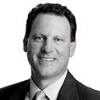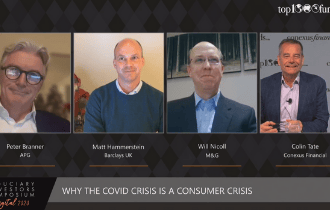Just over a year since the he Business Roundtable re-defined the statement of purpose of a corporation, away from just shareholder primacy, the world faced a severe global crisis. This session looks at companies’ responsiveness to the COVID-19 pandemic and inequality issues and how corporations can better serve all stakeholders in the future.
Anthony Eames is a vice president and director of responsible investment strategy for Calvert Research and Management, a wholly owned subsidiary of Eaton Vance Management specialising in responsible and sustainable investing across global
capital markets. He is responsible for the suite of strategies focused on responsible investing, encompassing actively and passively managed US and international equity strategies, fixed-income strategies and asset allocation funds. Eames is responsible for client communications and insights on investment strategy and portfolio positioning. He joined Calvert Research and Management in 2016 when Eaton Vance acquired the business assets of Calvert Investment Management,
forming Calvert Research and Management.
He began his career in the investment management industry in 1995 with Calvert Investment Management. He has been affiliated with the Eaton Vance organisation since 2016. Before joining Eaton Vance, he was senior vice president and national sales manager at Calvert Investment Management. Previously, he represented Calvert as senior regional vice president in the northeast and held various roles in client services and sales.
Eames earned a B.A. from Wittenberg University. He holds the Accredited Investment Fiduciary and Accredited Asset Management Specialist designations, and FINRA Series 7, 24 and 63 licenses.
Robert Eccles is the world's foremost expert on integrated reporting and a leader on how companies and investors can create sustainable strategies.
He was previously a tenured Professor and Professor of Management Practice at Harvard Business School.
He is the founding chair of the Sustainability Accounting Standards Board (SASB) and one of the founders of the International Integrated Reporting Council (IIRC). He has recently joined the board of Mistra Centre for Sustainable Markets (MISUM) in Sweden. He is also on the Advisory Board of the JANA Impact Capital Fund.
In 2011, Eccles was selected as one of the Top 100 Thought Leaders in Trustworthy Business Behavior, for his extensive, positive contribution to building trust in business, and in 2014 and 2015 he was named as one of the 100 Most Influential People in Business Ethics. He is also an Honorary Fellow of the Association of Chartered Certified Accountants (ACCA).
Eccles is the award-winning author of a dozen books, including seminal works on integrated reporting, sustainability, and the role of business in society. A prolific writer for both academic and practitioner audiences, he has his own column on Forbes.com. His most recent book (with Michael P Krzus and Sydney Ribot) is The Integrated Reporting Movement: Meaning, Momentum, Motives, and Materiality (John Wiley & Sons, 2015). In this book he suggests the idea of an annual board of directors 'Statement of Significant Audiences and Materiality'.
From the beginning of his career as an academic and practitioner, Eccles has always been dedicated to turning theory into practice. One of his most significant current efforts in this regard is 'The Statement of Significant Audiences and Materiality Campaign' in collaboration with the American Bar Association’s 'Task Force on Sustainable Development', the UN-backed Principles for Responsible Investment, and the UN Global Compact. The goal of this campaign is that, by 2025, the board of directors of every listed company will publish 'The Statement.' In doing so, they will demonstrate the extent to which the company views its role in society to be one of supporting sustainable development for the long-term interests of shareholders. This will help to make sustainability core to both companies and investors.
Eccles received an SB in Mathematics and an SB in Humanities and Science from the Massachusetts Institute of Technology (both degrees in 1973) and an AM (1975) and a PhD in Sociology (1979) from Harvard University. He joined the faculty of Harvard Business School that year and received tenure in 1989.
Mark Tulay has served in leadership roles in sustainability initiatives for over 25 years, focusing on advancing the metrics, measurement and management of corporate sustainability performance. As program director and the first employee of Ceres, he was involved in the early stages of the Global Reporting Initiative (GRI). He co-founded the Strategic Investor Initiative (SII) at CECP, which is re-orienting the capital markets to the long-term and is elevating sustainability factors as a CEO leadership imperative.
Tulay serves as finance and ESG program manager for GreenBiz, which is launching the GreenFin Summit to accelerate the rise and growth of sustainable finance and ESG and its link to corporate sustainability.
He also serves as founder and CEO of Sustainability Risk Advisors (SRA), which helps companies measure and manage what matters most for community, climate and culture.
He has a proven record of driving innovation and sustainable growth for environmental organisations, investment firms, companies, and environmental, social and corporate governance (ESG) ratings and research providers. He has demonstrated a unique ability to collaborate effectively with a diverse mix of constituencies – institutional investors, government, NGOs and companies – towards the common goal of accelerating the global transition to sustainable finance and development.
He serves on advisory boards for Cornerstone Capital Group and holds an MBA from Northeastern University.
White is responsible for the content across all Conexus Financial’s institutional media and events. She is responsible for directing the bi-annual Fiduciary Investors Symposium which challenges global investors on investment best practice and aims to place the responsibilities of investors in wider societal, and political contexts, as well as promote the long-term stability of markets and sustainable retirement incomes. She is the editor of conexust1f.flywheelstaging.com, the online news and analysis site for the world’s largest institutional investors. White has been an investment journalist for more than 20 years and has edited industry journals including Investment & Technology, Investor Weekly and MasterFunds Quarterly. She was previously editorial director of InvestorInfo and has worked as a freelance journalist for the Australian Financial Review, CFO, Asset and Asia Asset Management. She has a Bachelor of Economics from Sydney University and a Master of Arts in Journalism from the University of Technology, Sydney. She was previously a columnist for the Canadian publication, Corporate Knights, which is distributed by the Globe and Mail and The Washington Post. White is currently a fellow in the Finance Leaders Fellowship at the Aspen Institute. The two-year program consists of 22 fellows and seeks to develop the next generation of responsible, community-spirited leaders in the global finance industry.
Key takeaways
Anthony
- Companies will be judged on how they balance the needs of shareholders vs the needs of the rest of the stakeholder ecosystem.
- We believe the corporate response can either lengthen or shorten the severity of the pandemic.
- COVID is a helpful exercise in crisis management because the climate crisis is coming.
- There is power in engagement – companies are starting to fully publically disclose their employee diversity statistics.
Bob
- If we really want to push the boundaries, more companies should change their form to be public benefit corporations. Investors should pressure their portfolio companies to do that.
- ESG research is flawed because the data is not optimal quality. We need ESG reporting standards and mandated reporting in the same way that finance has accounting standards to ensure comparability of performance. Standards and mandated ESG reporting would give greater clarity on whether companies are meeting their intended purpose.
- System level inequality is an issue to wrap our global arms around to tackle, just like climate.
Mark
- Based on research with over 1 million datapoints:
1) Speed of response to the pandemic did correlate with outperformance
2) Companies with a strong ESG track record pre-crisis outperformed during the peak pandemic months
3) There was no correlation between companies signing a pledge and them treating stakeholders fairly during the pandemic
- Two additional key findings were:
1) European companies performed no better on the test of corporate purpose. This is not a US-only issue.
2) Current ESG research is not fit for purpose for investors, meaning a new research model leveraging machine learning and technology is needed
- This is not a time for complacency or celebration.
- Companies cannot and should not shirk away from hard facts, and companies that outperform on ESG metrics should be celebrated.
- The US is too male, pale and stale and increased disclosure requirements will help change this.
- Investors need to more proactively engage boards in the corporate purpose conversations to ensure top down buy-in.
Poll results
How do you enforce funds managers to engage on your behalf with corporate boards regarding their purpose?







